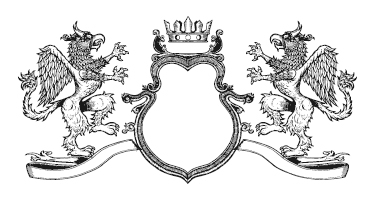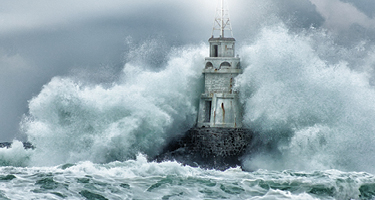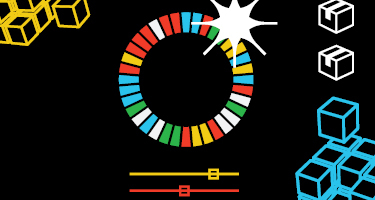Striving to make Europe the first “climate-neutral” continent, the European Union has committed to reducing its net greenhouse gas emissions by at least 55% by 2030 compared to 1990 levels, and to achieve full climate neutrality by 2050. These goals are the heart of a set of policy initiatives the European Commission announced in 2019 under the framework of the European Green Deal.
Carbon Pricing in the EU
For almost two decades, carbon pricing in the form of the EU Emissions Trading System (EU ETS) has been the flagship of the union’s fight against climate change. EU ETS is a market-based instrument that aims to incentivize the reduction of carbon emissions where it’s most cost-effective. It sets a cap on the total amount of emissions that can be released from electricity- and heat-generation facilities, installations in certain energy-intensive industry sectors and flights within the EU.
Companies covered by EU ETS must buy sufficient emission allowances for the greenhouse gases they emit. The cost of such allowances has risen from about €8 per metric ton of emissions at the start of 2018 to almost €100 as of August 2022.
EU ETS was the world’s first major carbon market; it remains the largest. According to the European Commission, EU ETS has reduced emissions cost-effectively, noting that installations covered by the program lowered them by about 35% between 2005 and 2019, which in turn has inspired other countries and regions to develop their own emissions trading systems.
The Risk of Carbon Leakage
Notwithstanding the EU’s efforts to achieve climate neutrality, large parts of the world have not yet priced greenhouse gas emissions. Given the lack of a level international playing field for business carbon pricing, companies in places with higher carbon costs (such as the EU) face a competitive disadvantage.
The EU’s strict climate policies therefore bear the risk of so-called “carbon leakage”—the shift of emissions from a country with rigid climate rules to another with more permissive standards. Carbon leakage occurs if EU-based businesses move their carbon-intensive production abroad to cut costs, or if countries replace EU products with cheaper, more carbon-intensive imports.
The cost of such allowances has risen from about €8 per metric ton of emissions at the start of 2018 to almost €100 as of August 2022."
So far, the EU has addressed the risk of carbon leakage by granting a certain number of free allowances to EU producers in sectors considered to be at a significant leakage risk. However, these allowances dampen the incentive to invest in climate-friendly production. As a result, the European Commission is striving to lower the number of free allowances for the sake of reaching the EU’s ambitious climate goals.
The Proposed EU Carbon Border Adjustment Mechanism
For these reasons, the European Commission has proposed a new instrument to equalize the price of carbon between domestic products and imports: the Carbon Border Adjustment Mechanism (CBAM), which might soon replace the system of free allowances.
Under CBAM, EU importers would be required to register with a CBAM authority and regularly report the emissions embedded in their imported goods—obligations that may come into effect around January 2023. Presumably beginning in 2027, importers would then have to buy carbon certificates to offset the imported goods’ emissions. The price for CBAM certificates would correspond to the carbon price that would have been paid had the goods been produced within the EU, mirroring the price for EU ETS allowances. Concurrent to CBAM’s phased implementation, free allowances would be phased out.
CBAM would depart from EU ETS in several respects. Most importantly, there would be neither a cap on available certificates, nor the ability to trade them. Under CBAM, if non-EU producers can show they already paid a price for the carbon emitted in the production of the imported goods, they’ll be able to fully deduct those costs. CBAM would therefore aim not only to help reduce the risk of carbon leakage but also encourage producers in non-EU countries to “green up” their production methods.
Possible Effects on International Trade
Whether CBAM—often called a “carbon tariff”—would be consistent with international trade rules, in particular the framework of the World Trade Organization, has been the source of a great deal of discussion. Some experts worry the EU’s introduction of CBAM would be seen as a disguised form of trade protectionism, thereby potentially irritating international partners and starting a trade war. (No countries outside the EU have implemented such a mechanism.)
EU legislators, cognizant of this potential backlash, have drafted their regulations carefully, explicitly aiming to maximize their compatibility with WTO rules. Further, the legislative process has been accompanied by diplomatic efforts both to increase acceptance among the international community and spur cooperation on carbon pricing.
Martin Hamer is a shareholder at the global law firm Greenberg Traurig and heads the German Environmental Group. He focuses on environmental matters including soil and groundwater contamination, environmental permits, nature protection, waste management, mining, and climate protection. Martin represents clients in complex permit procedures vis-à-vis public authorities, environmental liability litigation and public law contract negotiations.
Natalie Kopplow is an associate in the German Environmental Group at Greenberg Traurig. She advises national and international clients on environmental law, climate protection and energy law.
































